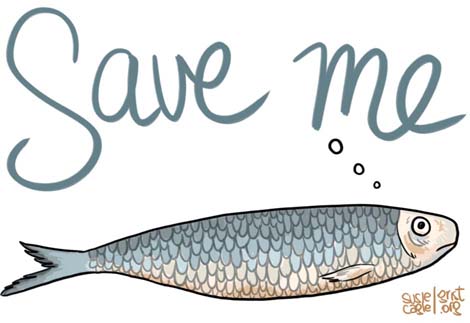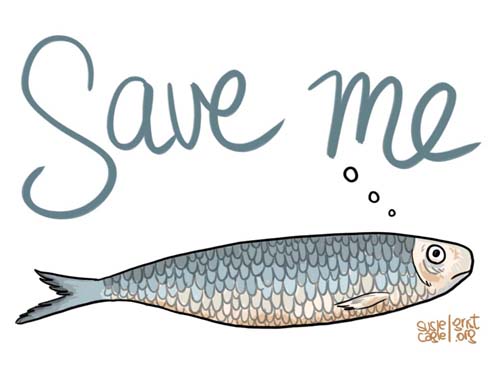Our tiny fish are in trouble. Sardines may be considered “sustainable,” but we’re not managing them well.

A new study from researchers in the U.S. and Venezuela on sardine collapse in the Caribbean has found “climate change, plankton decline, and overfishing” are to blame for an extreme decline that “may have dire socioeconomic consequences” for countries in the region. From SciDev:
The sardine, Sardinella aurita, feeds on plankton but since 2005, plankton levels in the Caribbean have reduced significantly, which, coupled with overfishing, may have contributed to the collapse of these fisheries — which plummeted by as much as 87 per cent, the study says … The Venezuelan sardine catch has dropped from about 200 thousand tonnes in 2004 in to less than 40 thousand tonnes today.
Study coauthor Robert Thunell emphasized the climate change connection. From The Huffington Post:
Thunell added that the drop in plankton populations is cause for real alarm.
“That’s a big deal. The plankton near the surface of the ocean are the base of the food chain,” Thunell said. “This climatological change is driving a change in the food web structure, which we’re now seeing affect the fisheries.”
Researchers added, however, that though “rising greenhouse gas emissions” in the last few decades have contributed to climate change, they are as yet unsure as to whether the decline in Caribbean sardines was triggered by man-made climate change specifically (rather than natural climate variation).
Little fish are having big problems in the Pacific, too — but things might be about to improve. On Wednesday, the California Fish and Game Commission adopted a new policy to protect forage fish — from sardines to anchovies, shrimp to krill — and, by extension, the ocean life that relies on them.
It’s a unique move to separate concerns about forage fish from the rest of the ocean food chain. Just a few days ago, conservation group Oceana publicly criticized Pacific fisheries for their large forage-fish catches. Yesterday, Oceana praised the commission’s move. “Because forage fish are critical to the sustainability of California’s environment, we commend the Fish and Game Commission’s leadership and commitment to recognizing and accounting for the importance of these little fish in future fisheries decisions,” a spokesperson said.



